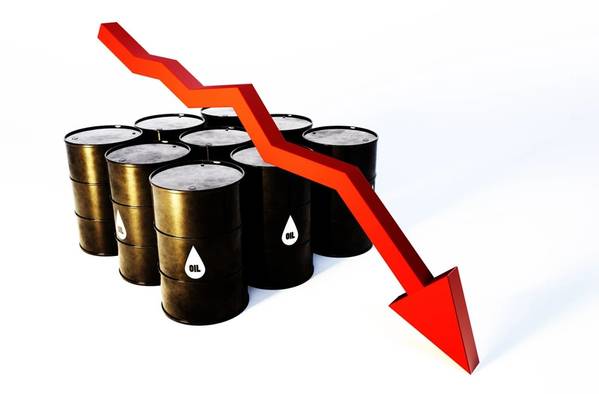
Losing more than a quarter of their value, oil prices were set on Monday for their biggest daily rout since the first Gulf War, after Saudi Arabia cut its official prices in a market already reeling from the impact of the coronavirus on global demand.
Saudi Arabia slashed its official selling prices and made plans to ramp up crude output next month after Russia balked at making a further steep output cut proposed by the Organisation of Petroleum Exporting Countries to stabilize oil markets. Brent crude futures were down $11.38, or 25%, at $33.89 a barrel by 0732 GMT, after earlier dropping to $31.02, their lowest since Feb. 12, 2016.
Brent futures were on track for their biggest daily decline since Jan. 17, 1991, when prices dropped at the start of the first Gulf War. U.S. West Texas Intermediate (WTI) crude fell by $11.12, or 27%, to $30.16 a barrel, after touching $27.34, also the lowest since Feb. 12, 2016. The U.S. benchmark was potentially heading for its biggest decline on record, surpassing a 33% fall in January 1991.
"The timing of this lower price environment should be limited to a few months unless this whole virus impact on global market and consumer confidence triggers the next recession," said Keith Barnett, senior vice president strategic analysis at ARM Energy in Houston.
The disintegration of the grouping called OPEC+ - made up of OPEC plus other producers including Russia - ends more than three years of cooperation to support the market. Saudi Arabia plans to boost its crude output above 10 million barrels per day (bpd) in April after the current deal to curb production expires at the end of March, two sources told Reuters on Sunday.
The world's biggest oil exporter is attempting to punish Russia, the world's second-largest producer, for not supporting the production cuts proposed last week by OPEC. Saudi Arabia, Russia, and other major producers last battled for market share like this between 2014 and 2016 to try to squeeze out production from the United States, which has grown to become the world's biggest oil producer as flows from shale oil fields doubled over the last decade.
"The deal was always destined to fail," said Matt Stanley, senior broker at Starfuels in Dubai. "All that happened was, and all that has consistently happened since the inception of the cuts, has been that U.S. shale producers have gained market share." Saudi Arabia over the weekend cut its official selling prices for April for all crude grades to all destinations by between $6 and $8 a barrel.
"The prognosis for the oil market is even more dire than in November 2014, when such a price war last started, as it comes to a head with the significant collapse in oil demand due to the coronavirus," Goldman Sachs said.
VIRUS IMPACTS DEMAND
Meanwhile, China's efforts to curtail the coronavirus outbreak has disrupted the world's second-largest economy and curtailed shipments to the biggest oil importer. And the spread of the virus to other major economies such as Italy and South Korea and the growing number of cases in the United States have increased concerns that oil demand will slump this year. Goldman Sachs and other major banks such as Morgan Stanley have cut their demand growth forecasts, with Morgan Stanley predicting China will have zero demand growth in 2020. Goldman sees a contraction of 150,000 bpd in global demand.
Goldman Sachs cut its forecast for Brent to $30 for the second and third quarters of 2020. In other markets, the dollar was down sharply against the yen, Asian stock markets sharply lower, and gold rose to its highest since 2013 as investors fled to safe havens.
(Reporting by Aaron Sheldrick; Additional reporting by Scott DiSavino and Shu Zhang; Editing by Diane Craft, Christian Schmollinger, Tom Hogue, and Simon Cameron-Moore)